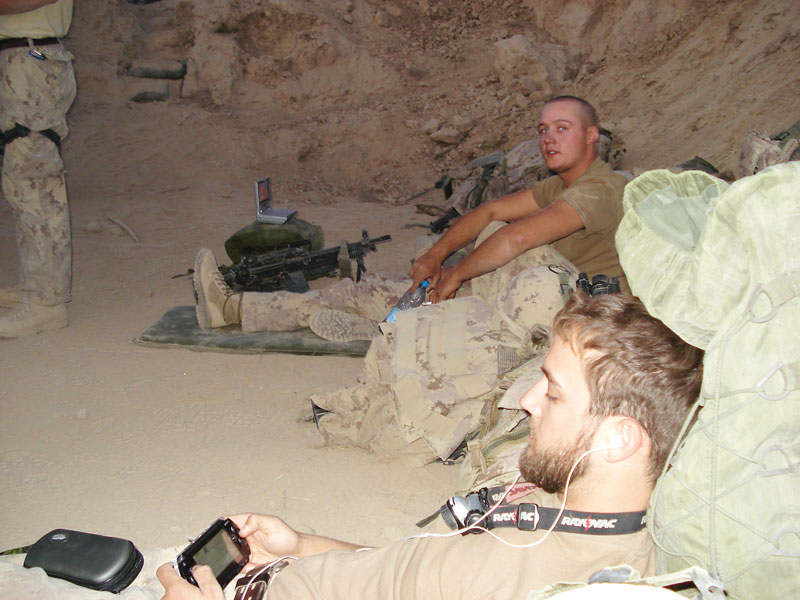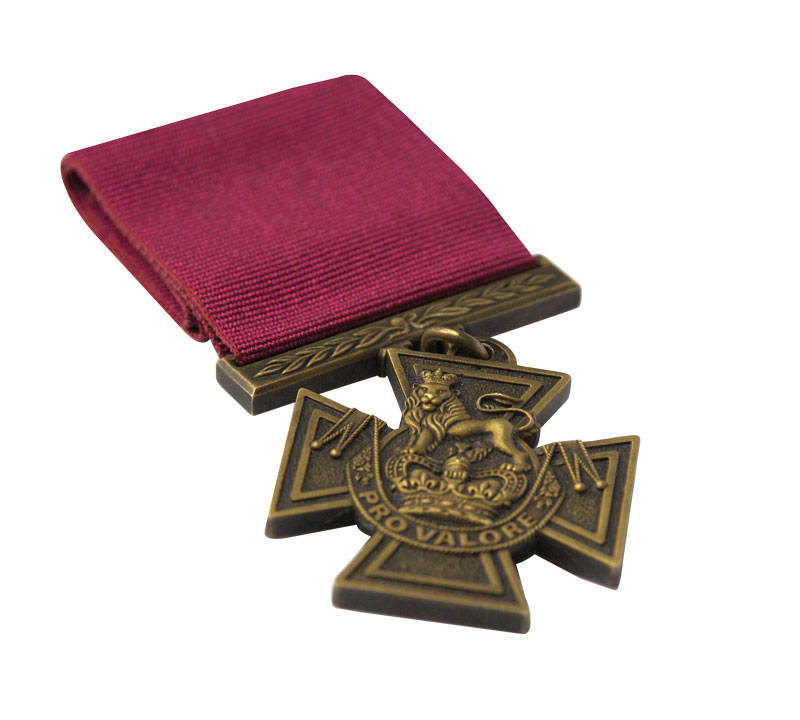Government MPs have voted down the proposed creation of a board to review historical combat actions, including those of Private Jess Larochelle, with an eye to recommending Victoria Crosses where warranted.
Former Conservative leader Erin O’Toole drafted a detailed proposal after New Democrat MP Niki Ashton tabled a 14,129-name petition on May 19 urging the federal government to re-evaluate Larochelle’s decorated conduct in Afghanistan (see “Danger close,” March/April).
The consent motion required unanimous support from all members of the House, after which O’Toole’s pitch for a military honours review board would have been debated and likely passed by a simple majority of MPs in the minority parliament.
“All of the parties except the Liberals voted for it,” said a statement from the group Valour in the Presence of the Enemy, which has been championing a review for Larochelle and 26 other veterans dating to the First World War.
With several of his comrades-in-arms dead or otherwise out of action, a badly wounded Larochelle was left alone in a perimeter observation post spearheading the defence of a strongpoint near Pashmul in southern Afghanistan.
The Oct. 14, 2006, attack by Taliban fighters was ultimately repelled and Larochelle was awarded the Canadian military’s second-highest honour, the Star of Military Valour (SMV). “His valiant conduct saved the lives of many members of his company,” said his citation.
His battle group commander, now-retired lieutenant-general Omer Lavoie, was in that engagement and witnessed Larochelle’s performance.
“I have always felt that his actions that day in continuing to fight despite being wounded in order to break the enemy attack was worthy and commensurate with the historical awarding of a Victoria Cross,” said Lavoie.
Valour in the Presence of the Enemy is made up largely of Afghanistan vets headed by MP Ashton’s partner Bruce Moncur—himself a wounded member of Larochelle’s Royal Canadian Regiment. The group has garnered broad support.
But the awards process is primarily a military one, and it is complex. Any witness can nominate a VC candidate, but it must be endorsed by the nominee’s unit commander and is subject to reviews and revisions before a final decision is made by the Chancellery of Honours, on behalf of the Governor General. Among 1,355 British Empire and Commonwealth soldiers, sailors and aircrew awarded the original Victoria Cross are 98 Canadians, the last of them Lieutenant Robert Hampton Gray, a pilot with Britain’s Fleet Air Arm, in 1945.
In 1993, Canada followed Australia’s precedent and established its own VC. New Zealand did so in 1999. But while Australia has awarded four of the new VCs and New Zealand one, Canada has awarded none.
There were 109 actions honoured with intermediate gallantry awards in Afghanistan, including 20 SMVs, Lieutenant-Colonel Carl Gauthier, the military’s director of honours and recognition, said in 2018.
A committee of general officers reviewed all the citations and nomination processes, concluding they were fair and consistent throughout.
“There should be no limitation period attached to recognizing such heroic conduct.
Valour in the Presence of the Enemy quoted an unnamed participant in the 2012 SMV review who said the committee “struggled with the understanding [of] where the threshold was.”
“He said it was very subjective and it was clear to him at the time part of what was going on was a sense of just waiting for someone else to come along and do something incredible.”
The chief of the defence staff, General Wayne Eyre, was reviewing Larochelle’s file and consulting Commonwealth allies. The Royal Canadian Legion endorsed the effort.
In a June 14 letter to MPs, O’Toole, a veteran himself, said the board would “serve as an independent review body to advise the [chancellery] with respect to errors or omissions related to military honours within the Canadian Honours System.”
Describing the matter as non-partisan, he noted no such process exists.
“There should be no limitation period attached to recognizing such heroic conduct, nor should we be satisfied that there is no mechanism to review decisions related to recognition.”
Canada’s main allies—including the U.S., the United Kingdom and Australia—“have acknowledged that their systems are imperfect and have acted to address this. Canada must act as well,” he added.
Defence Minister Anita Anand’s office told the National Post the government isn’t against O’Toole’s proposal, but it needs study.
“We are always looking at new ways to honour the sacrifice and bravery of CAF members and veterans, and will be taking the necessary time to examine this particular proposal,” said defence ministry spokesman Daniel Minden.
O’Toole’s proposed board would include representatives from National Defence, academia, the Governor General’s office, the Prime Minister’s Office, the Canadian War Museum and The Royal Canadian Legion, among others.
Advocates for Larochelle say time is of the essence in his case. His war wounds have severely curtailed his mobility and he has been tormented by post-traumatic stress disorder.
Advertisement














